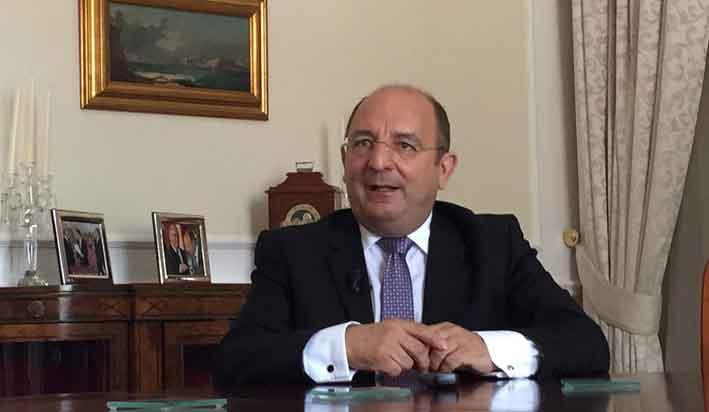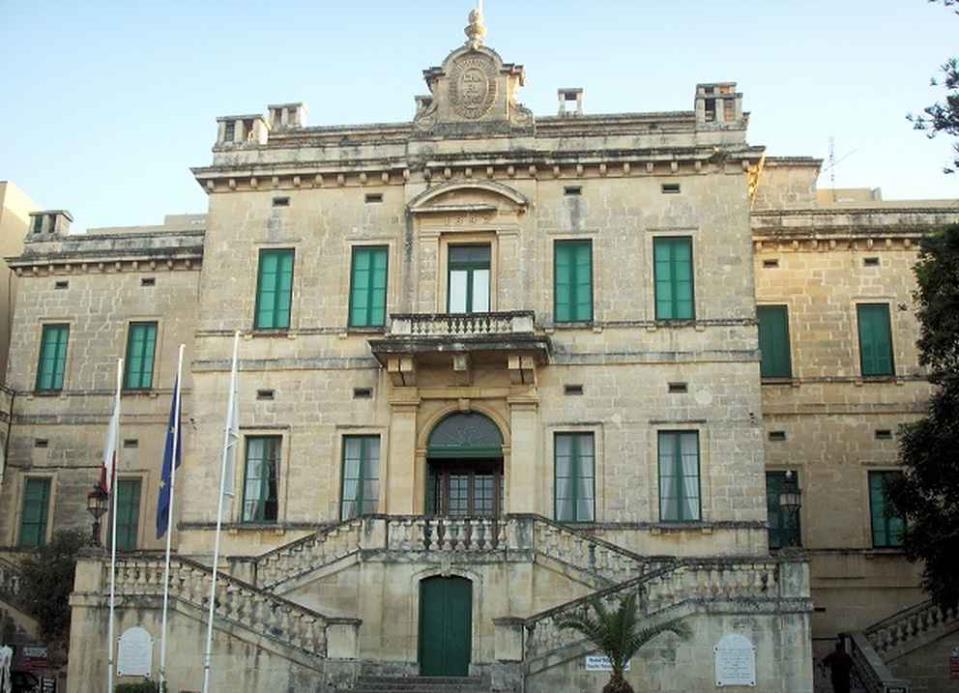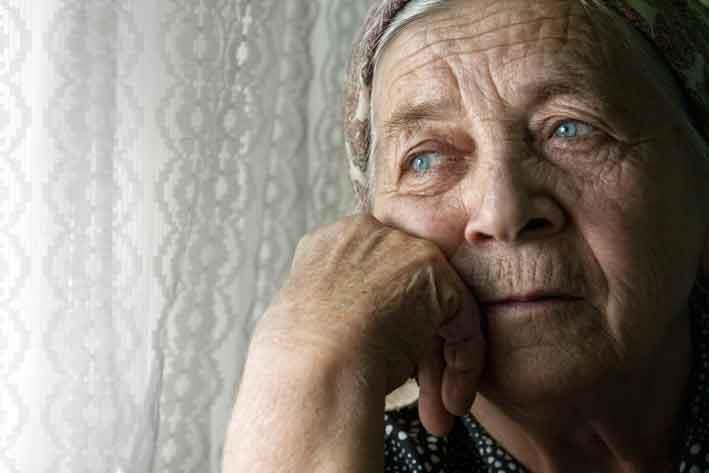The government is currently reviewing amendments to the long-awaited Child Out-of-Home-Care Protection Bill. However, it is still contemplating whether or not to include permanent fostering in the bill. The bill has not yet been discussed in parliament, despite the fact it was presented in March 2014. However, Dr Farrugia said that by the end of summer the amendments should have been reviewed together with the Ministry of Justice, since it is being proposed that care orders will be issued by the courts.
On permanent fostering, Dr Farrugia said: "Permanent fostering or adoption will only be adopted in cases where biological parents blatantly refuse or are unsuccessful in following up on a family plan aimed at reuniting the child with his/her biological parents.
“The aim of the family plan is to empower biological parents of children who are under a care order. It is only in the event that the natural parents of the child continue to ignore such efforts that permanent fostering or adoptions would be considered.
“If the biological parents were to refuse to follow up on a tailor-made family plan, then they cannot expect their child to not be fostered permanently,” he explained.
Dr Farrugia went on to say that the concept of permanent fostering is not based on a particular time-frame. He explained that certain cases take longer to deal with than others and therefore permanent fostering won’t be considered simply because the child has been undergoing treatment or has been fostered for a period of time.
“Our top-most priority is to safeguard the interests of the child and not those of the biological parents or foster parents,” he highlighted.
Dr Farrugia did not rule out that there could be cases whereby it is decided that adoption or permanent fostering is the most suitable for the child, emphasising that this can happen after a month, two months or two years. It all depends on the case, he said.

Farrugia says his words were ‘twisted’
Turning to reports where foster parents said they felt hurt by the minister’s words such as reports which stated that Dr Farrugia implied that foster parents fostered children to get social benefits, Dr Farrugia said that his words were “twisted and turned” by a media organisation.
In a bid to explain further, he said that he was only referring to a particular case where a foster parent had refused to adopt the child despite the fact that the biological parents of the child had signed up for the child to be adopted by the foster parent. He said his words were “conveniently” misinterpreted.
When asked if this foster parent in particular refused to adopt the child because she would lose out on benefits, Dr Farrugia replied in the affirmative.
“I never said that foster parents fostered children for financial gain – they get €10 a day – but it was a particular case which I felt hurt by.”
“If there is a case where it is felt adoption is the best for the child, then I prefer that that child is adopted since the child would now have a family for ‘good’.”
“In the event that the biological parents of the child would not have signed up for their child to be adopted by the foster parents, then we would probably go for the permanent fostering concept,” he said.

Child Protection Bill
When asked why the Child Protection Bill (out of homecare) bill was presented to parliament on 24 March, 2014 by then family minister Marie-Louise Coleiro Preca but to date has not been debated, Dr Farrugia said: “We have just finalised the amendments tied to the Child Protection Bill.
“We are currently in talks with Justice Minister Owen Bonnici and reviewing the amendments. As soon as we conclude on the amendments, by the end of summer, we will debate the bill in parliament.
“One particular issue is that due to the fact that the onus is that of the courts for a care order to be issued, there has to be a structure created within the courts so that it will be fully prepared for this new process,” Dr Farrugia explained.
“What we also did,” Dr Farrugia continued, “is make clear the responsibilities of both the Family Ministry and Justice Ministry when it comes to such issues.
“We did this because we believe that it does not make any sense that the person/s tasked to investigate such cases and who eventually decide to issue a care order will also be the ones to implement a family or child plan proposed for each and every case.
“The aim of our ministry is to see that the situation is improved, be it of the child who is under a care order and the biological parents of the child.
“In the event this does not happen, the persons responsible for the care of the child – which fall under my remit – will hand over the reports compiled by the carers to the justice ministry’s boards which review such cases so that other necessary steps are taken,” he pointed out.

Government meets up with foster care association
This newsroom pointed out that Paul Gatt from the National Foster Care Association stated that he was not involved in the amendments of the proposed bill.
On this point, Dr Farrugia said that Mr Gatt met up with representatives from his ministry last week while pointing out that Mr Gatt also attended the ‘Government that listens’ session where “his questions were answered to there and then publically”.
On amendments to fostering, he said that he believes that amendments should be made to the fostering law but should not fall under the Care Orders law.
Added financial help for foster parents who accept to care for siblings
Dr Farrugia said that internal discussions are under way where it is being proposed that siblings are fostered by the same family.
But this would not happen in all cases. “It is only if the board entrusted to review such cases advises that it is best that in certain cases siblings live together under one roof that we will go for this option,” he said.
He said that it is also being discussed whether or not such foster parents should get added financial help for having accepted that they care for the siblings so that the siblings can remain living under one roof.
“One thing that bothers me is when siblings are separated. We have opened and concluded discussions with the Church regarding the Hamrun Fra Diegu home which has started catering for siblings.
“This home has dormitories which allows young siblings to live together but when they reach a certain age, they are moved to another dormitory for boys and girls separately, but remain living in the same building.
“The fact that they are living under one roof can help them interact with each other, giving them the opportunity to continue to integrate.
“We would like to adopt the same concept with foster care,” he said.
He referred to the case of Norway and other countries whereby before a child is fostered or adopted, a suitable family member of the child is sought and asked, after the necessary checks are carried out, as to whether he or she wants to bring up the child. He said that this option is also being considered.

St Vincent de Paul residence
Asked whether he feels that the CEO of the St Vincent de Paul residence has a conflicting role, since she not only has a big role to play which takes a considerable amount of her time, but also sits on the administrative board and has her own private practice to deal with, Dr Farrugia said: “Whenever I ask her a question, even if it is late at night, she has a reply to my question which shows she is in total control of the situation. She works more than her stipulated 40-hour week,” he said.
As for the administrative board she forms part of, until some years ago, those persons who formed part of it did not receive renumeration but that changed time ago. She only receives a small portion, contrary to what has been claimed.
Apart from this, her contract stipulates that she can engage in her private practice as long as it does not interfere with her work.
“All I can say is that if she had a conflicting role, I would have no qualms in telling her so,” he continued.

Elderly abuse being treated seriously
Asked to confirm reports on a case whereby a patient who passed away was buried without SVPR alerting the patient’s relatives, he said: “One has to respect the declared wishes the patient made a long time before he passed away.
This means that it is not a case whereby the patient’s relatives were not alerted, but the patient seems to have only wanted certain individuals to be alerted once he passed away.
“If a patient puts something in writing, one has to respect that,” he continued. The procedure used when a person dies was followed.
As for elderly abuse, he said: “We rope in the police each time an alleged case of abuse surfaces.
“Recently we introduced a law where abuse of elderly persons is now considered an aggravated crime whoever is involved irrespective whether they are family or professional carers. It could be a case where the person neglects him/her or forces the elderly person to sign a contract against his/her will.
“Persons who are found guilty of such crimes can face a prison sentence, he said, which means that we are treating such cases seriously,” Dr Farrugia said.

Social housing
He said that the first thing the government did when it was elected was to review the pending applications for social housing.
“We went through all the applications for various reasons: Either due to the fact that some applicants are not with us any longer or for the simple reason that certain persons who applied had a change in circumstances, like, for instance, not being entitled to social housing due to his or her change in income.
“We are identifying properties which are abandoned. Once this is done we will try and retrieve the keys to these properties from relatives of the individuals who once resided in them or from the tenants themselves who are not utilising the properties.
“Also, in 2013 an expression of interest had been issued which enabled those who owe the government tax money can pay off his or her debts by giving his or her vacant property to the government instead.
“This is a delicate process and we are trying our best to make it as foolproof as possible. The system has already been evaluated by architects and accountants who, in turn, produced a report. We also engaged an independent auditing firm to evaluate all the internal reports. The next thing in line is to meet contractors to negotiate an agreement on the price of such properties.”
He assured this newsroom, when asked, that nobody would end up homeless as a result of this scheme since the properties involved would have to be vacant ones.
Dr Farrugia also said that the housing authority will be looking at certain properties which are empty to come up with a scheme that can eventually transform them into social housing.
Arup report on weak concrete
Dr Farrugia explained that local engineers are currently evaluating the Arup report. Arup is a company comprising engineers and which was tasked to draw up a report on the weak structures of three blocks of apartments in Mtarfa. The units were purchased by the owners of the apartments from the Housing Authority in 2000 after a scheme was launched then.
However, it turned out that reports had been made several times under the previous administration on the weak structures but the architects at the time had said the structures were fine. Last month, the minister announced that after checks were made on the concrete structures of the apartments, it was established that the structures are “weak”. The apartments had been built between 1994 and 1996.
He said that a tender would be issued for the repair works to be done.
Dr Farrugia said other reports had flowed in on other properties which were purchased from the Housing Authority in the past and such reports are being followed up.
Woman offered €30,000 for her daughter
When asked if he felt concerned over reports that a woman was asked by a Middle Eastern looking man to sell her daughter for some 30,000 while having a stroll on the Sliema promenade, Dr Farrugia said: “This is unacceptable and a scandal. We are so concerned that the government is ensuring that foreign children put up for adoption won’t be victims of human trafficking. Therefore, we are cautious in any agreements we engage in on adoption with other countries,” he said.